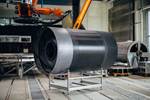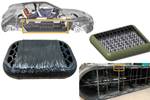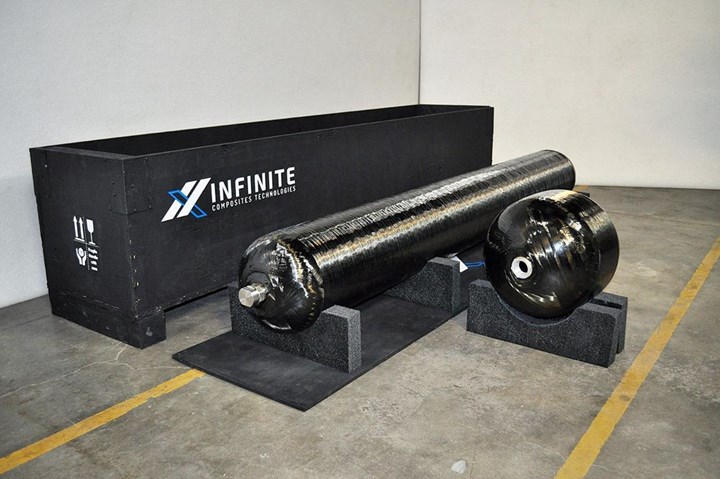Infinite Composites signs $1.6 million US Army contract for H2 tanks
Development of conformable composite fuel tanks for hydrogen storage backs military applications including aircraft, ground support and marine.
Infinite Composites Inc. (Tulsa, Okla., U.S.) signed a contract for a $1.6 million small business innovative research (SBIR) direct to phase II contract by the U.S. Army to develop conformable hydrogen tanks. The company develops Type V composite pressure vessels (see, “Infinite Composites: Type V tanks for space, hydrogen, automotive and more”).
Hydrogen is becoming an attractive alternative fuel source for both military and commercial vehicle applications as a replacement for fossil fuels. The Department of Defense (DOD) has created several initiatives to increase funding to develop new and improved hydrogen technologies for military vehicles including aircraft, ground support and marine applications.
Infinite Composites’ proposal was selected to focus on improving the storage technologies for hydrogen fuel, specifically, the shape of the storage container. Moving away from the conventional cylindrical or sometimes spherical designs could make the way hydrogen is stored more efficient and effective, enabling the tanks to be placed in more strategic locations in the vehicle, such as the wing of an aircraft.
“These tanks will be manufactured using 90% additive manufacturing processes and are designed to be lightweight, using non-cylindrical geometries, making them easier to transport and use in a variety of different environments,” Matt Villarreal, CEO and cofounder of Infinite Composites, says. “They are made of advanced composite materials that leverage nano-scaled reinforcements, allowing for greater strength and durability while maintaining a lightweight design.”
Infinite Composites will work closely with partner Dr. Ranji Vaidyanthan, head of the Next Generation Materials Lab, at Oklahoma State University-Tulsa to develop a conformable hydrogen tank that meets the strict standards and requirements of the military. The team previously developed a similar technology for compressed natural gas (CNG) applications through research funded by the National Science Foundation (NSF) and the Oklahoma Center for the Advancement of Science and Technology (OCAST).
Additionally, the proposal has drawn interest from commerical clients such as Skydweller Aero (Oklahoma City, Okla., U.S.) and Empirical Systems Aerospace (ES Aero, San Luis Obispo, Calif., U.S.) that would use the conformable hydrogen vessels for future vehicle designs. Infinite Composites has selected Skydweller as an initial commercial integration partner. ESAero is the U.S. distributor for Intelligent Energy’s lightweight hydrogen fuel cells and is also interested in integrating Infinite Composite tanks to advance the capabilities of hydrogen sUAS.
Related Content
-
MATECH C/ZrOC composite is deployed in hypersonic aeroshells
Ultra high-temperature insulating CMC targets hypersonics, space heat shields and other demanding applications, tested up to 2760°C under extreme stagnation pressures.
-
Airbus presents unmanned Wingman concept
Fighter jet model unveiled at ILA Berlin, made from an iron structure and composite outer skin, will deliver more tactical options, supporting future combat missions.
-
Pull-wound carbon fiber poles enable lightweight, compact, rigid emergency stretcher
Based on military feedback, Epsilon Composite developed an optimized, foldable stretcher that combines telescopic pull-wound carbon fiber tubes.

















